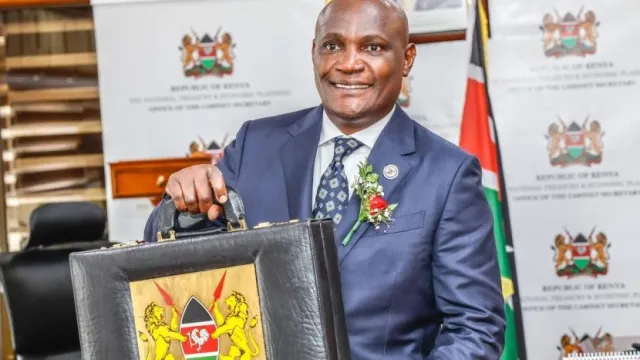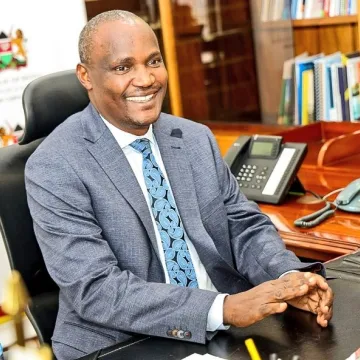Mbadi targets economic revival after year of disruption

Treasury Cabinet Secretary John Mbadi.
Treasury Cabinet Secretary John Mbadi has presented a KES4.2 trillion spending plan for the 2025/2026 financial year, marking his debut budget with proposals designed to revive a slowing economy and rebuild public trust following a turbulent 2024.
Speaking before the National Assembly on Thursday, CS Mbadi said the government’s blueprint aims to promote sustainable economic growth, lift livelihoods, and bolster industrial development across the country.
“In 2024, the economy grew by 4.7 percent, supported by positive growth across all sectors except construction and mining,” said Mbadi, adding; “This was lower than the 5.7 percent recorded in 2023, largely due to the devastating floods in Q2 and nationwide protests against the Finance Bill in Q3, which disrupted business activity.”
Despite the slowdown, the economy showed relative resilience, recording an average growth rate of 5.2 percent in 2023 and 2024—well above the global average of 3.3 percent and sub-Saharan Africa’s 3.8 percent during the same period.
Looking forward, Mbadi projected a steady growth trajectory of 5.3 percent annually in both 2025 and 2026, buoyed by expectations of macroeconomic stability and targeted investments in growth-enabling sectors.
Revenues and Deficit
To finance the ambitious budget, the government plans to collect KES3.3 trillion, equivalent to 17.2 percent of GDP. Of this, KES2.7 trillion is expected to come from tax revenues, supplemented by non-tax revenues and grants.
The fiscal deficit is projected at KES924.6 billion, or 4.8 percent of GDP. Mbadi outlined that KES287 billion of the deficit will be funded through external borrowing, with the remainder sourced domestically.
Healthcare, Technology, and Tax Relief
Key spending priorities include enhancing access to affordable healthcare through the Universal Health Coverage (UHC) program and expanding investments in digital infrastructure to boost connectivity and empower the creative economy.
Acknowledging the backlash against 2024’s unpopular tax measures, Mbadi explained that the new budget was shaped by public consultation.
“The 2025/26 budget focuses on easing the tax burden on Kenyans by broadening the tax base and improving compliance, rather than introducing punitive measures,” he said.
This shift signals a recalibration of government strategy—aimed at striking a balance between fiscal consolidation and citizen welfare amid heightened calls for transparency and accountability in public finance management.





